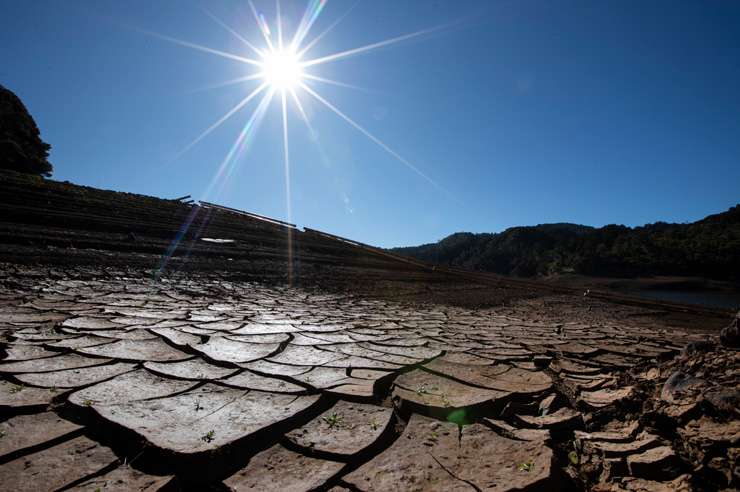The water shortage in New Zealand’s biggest and hottest real estate market is expected to reach uncomfortable levels for sellers as summer approaches.
Experts have told OneRoof that Auckland homeowners will find it hard to make their gardens a selling point in the idle of a drought.
While commercial businesses in the city today welcomed the easing of water restrictions that have been in force since May, Auckland’s mayor has warned that dam levels are continuing drop.
Professionals real estate agent Derek von Sturmer says garden and outdoor areas are a problem area for many listings, with lawns often looking parched and patchy.
Start your property search
“We use Photoshop to make it look a little bit livelier. Gardens and lawns are all struggling at the moment and they can’t be expected to look absolutely amazing but presentation is really important to making sure you get the top price,” he says
He stresses that photoshopped images are only points of reference, showing what a property could look like, and that buyers understand that.
Von Sturmer says the water shortage issue has had big impact on new builds or listings that have undergone recent building work.

Running low: The Lower Huia Reservoir, Huia, in the Waitakere Ranges, in May. Photo / Brett Phibbs
“There’s dust and mess everywhere and it’s really hard to tidy up, especially drive ways. So, if you were to take photos of the property, there’d be dirt on the house and windows.”
Von Sturner says homes with water tanks and other sustainable features could be in high demand.
“People are more eco-minded and don’t want to waste the resources, so having an ability to recycle your own water is definitely a positive,” he says.
Bayleys agent David Rainbow says water or the lack of it can be a bigger issue for people with large properties and backyards.
“People understand that the lawns aren't going to be done to the highest standard. It is what it is,” he says.
There's an option of spraying the front lawn with paint, as it’s done on movie sets – but that could be costly, he says.
"A manicured, green front lawn is always good for presentation but if you don’t have it, it's not going to stop the sale.”
From today commercial firms in Auckland will be able to use hoses with a trigger nozzle outdoors, and sports fields, plants and paddocks can be watered with irrigation systems. However, However, the ban on washing cars, houses and watering the garden by residents stays and won’t be reviewed until December.
Lorcan Kenny, owner of cleaning firm Pro Waterblasting, says there’s a misconception about the amount of water the industry uses.
Water blasting services use less than one per cent of daily water usage, according to council data, he says. Residents use 70 per cent of the city's water.
Kenny says waster-blasting a house is just as important as washing and a vacuuming a car before selling it. “A house in Botany that we washed sold for $90,000 more than what the real estate agent said it would go for and I think it’s because of what we did.”
He says his company uses soft wash technology, ”where we apply a detergent that kills the mould and bacteria and then wash it off with a small amount of water using fine droplets on blast”.
Auckland water restrictions from October 12
• Commercial water users will be able to use a hand-held hose fitted with a trigger nozzle; use a regular hose for health, safety, emergency and biosecurity reasons; operate a car wash service; water sports fields, plants and paddocks using irrigation systems fitted with soil moisture sensors or rain sensors.
• Residential users are still prohibited from using a hose outdoors, but can water the garden with a watering can or clean their car using a bucket, for example. Residents are also urged to continue reduce indoor water use by at least 20 litres a day, every day.
• Commercial users are asked to continue to reduce indoor water use by at least 10 per cent, compared with the same time last year.



